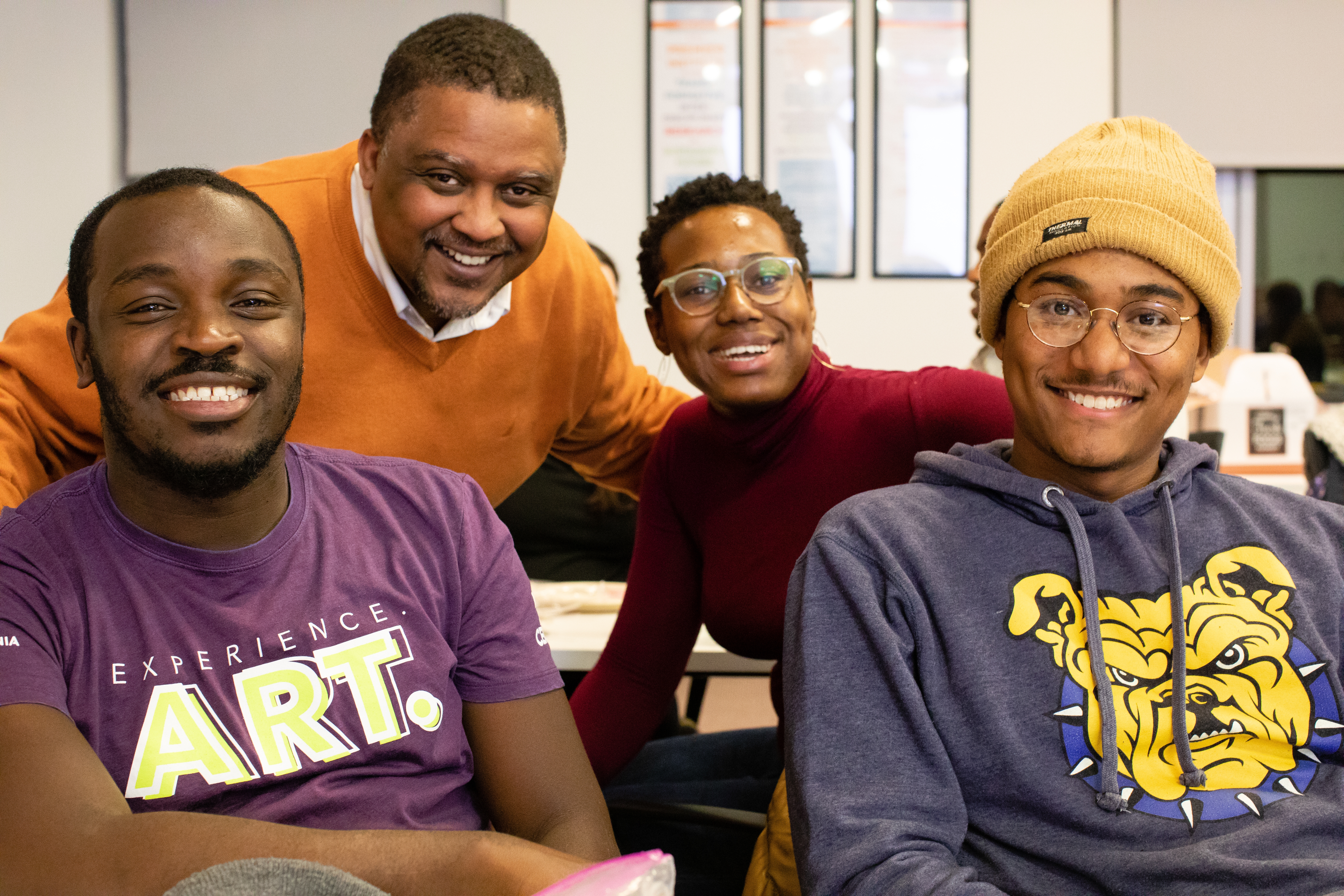College of Engineering's efforts to expand support for underrepresented graduate students recognized

Liselle Joseph is a triple Hokie, having earned her bachelor’s, master’s, and doctoral degrees from Virginia Tech. A native of Grenada, Joseph is also the first woman from an eastern Caribbean nation to earn a Ph.D. in aerospace engineering.
While pursuing her education, Joseph participated in internships and research projects with NASA, General Electric, Cummins, the U.S. Navy, and the National Science Foundation. She was also a Virginia Tech College of Engineering New Horizon Graduate Scholar — an initiative dedicated to creating successful pathways for minority graduate students.
“The program [New Horizon Graduate Scholar program] was helpful to me because it brought together a diverse group of like-minded students,” said Joseph, now senior aerospace engineer at Pratt & Whitney, responsible for NASA technology programs. “It definitely helped to see other minority engineers working toward the same goal and succeeding. Also, since many of us don’t come from families with a large amount of higher education degrees, having that form of support and presence is important. I think that made it easier to keep going when things got hard.”

One of the contributing factors to the college’s success in graduating minorities like Joseph is initiatives like the New Horizon Graduate Scholars Program, developed in partnership with the National GEM Consortium, a network of leading corporations, government laboratories, top universities, and top research institutions that enables qualified students from underrepresented communities to pursue graduate education in applied science and engineering.
The college’s efforts to expand support for underrepresented graduate students is being recognized in the February issue of Diverse: Issues In Higher Education that lists Top 100 Degree Producers. Virginia Tech’s College of Engineering is the No. 1 producer of African American doctorate degree holders in the nation.
“We are pleased to be recognized among our peers for our efforts to help our students achieve success. The College of Engineering’s New Horizon Graduate Scholars program was conceived and developed eight years ago in partnership with the GEM Consortium and to provide a foundation for increasing diversity among the engineering graduate student population,” said Jack Lesko, associate dean for research and graduate studies. “The program provides multiyear funding to attract students to Virginia Tech along with intentional community building and professional development programming in place that helps to ensure persistence.”
Lesko, along with Renee Cloyd and Tremayne Waller, lead the college’s New Horizon Graduate Scholars program, which currently supports 123 graduate students. Individual students are nominated by their departments to participate in social activities, workshops, writing and reading groups, and connect with industry leaders that work to strengthen their academic experience. Students admitted into the program receive a multiyear offer that includes a stipend and tuition provided by the College of Engineering’s Dean’s Office, the Graduate School, and engineering departments.
Over the past eight years, the New Horizon Graduate Scholars Program has:
- Supported 240 graduate students.
- Conferred approximately 90 graduate degrees, the majority of which are doctorates.
- Retained 90 percent of its students.
"We are not surprised by Virginia Tech's ranking as they have consistently been a significant supporter and strategic partner of GEM and share our vision of scientific impact,” said Brennon Marcano, chief executive officer of The National GEM Consortium. “From day one, they understood that building communities is a long-term strategy, and we are happy to see the result of their efforts."
In addition, incoming first-year graduate students are assisted with their graduate college transition by the New Horizon Graduate Scholars Peer Mentoring Program. Peer mentors provide positive academic, professional, and social environments outside of the classroom. Mentors are trained to offer guidance to incoming students, including advising students to seek academic advice from their faculty research advisor and/or department graduate coordinator. They also provide firsthand insight into their own student perspective on the College of Engineering experience.
According to Julia M. Ross, the Paul and Dorothea Torgersen Dean of Engineering, bringing new people with different backgrounds to the table, both for building a better college and for solving 21st-century problems, is critical. Ross unveiled the college’s strategic plan in fall 2019, which seeks to increase representational diversity in the college.
Ross also named nationally renowned pioneer in engineering education Bev Watford the college’s first associate dean of equity and engagement. In her role, Watford serves as the chief diversity, equity, and inclusion officer, focused on helping the college achieve and advance inclusive excellence at all levels, including pre-college, undergraduate, graduate, staff, and faculty.
In 2019, the College of Engineering was among the first in the country to earn a bronze award and only one of 29 institutions that received exemplar status from the American Society for Engineering Education (ASEE) in its inaugural year of their Diversity Recognition Program.
The program was created to recognize engineering and engineering technology colleges that make significant, measurable progress in increasing diversity, inclusion, and degree attainment outcomes of their programs, according to the ASEE website. The bronze level must first be earned before an institution can be considered for silver or gold recognition.
Diverse: Issues In Higher Education’s data reflect the top 100 producers of associates, bachelors, and graduate degrees awarded to underrepresented students, originating from completion surveys of the Integrated Postsecondary Data System collected by the U.S. Department of Education’s National Center for Education Statistics. Published bi-weekly, Diverse remains the only national newsweekly today focusing on matters of access and opportunity for all in higher education.




